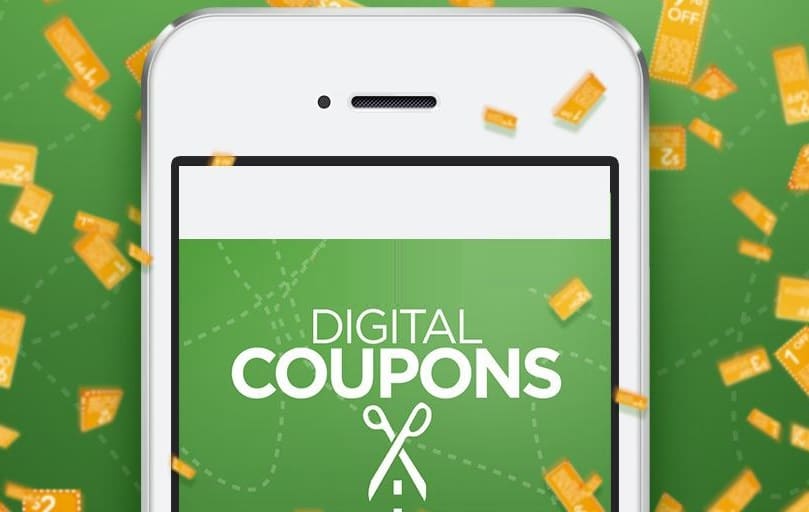
If at first you don’t succeed…
Of the half dozen bills proposed over the past year aimed at legislating how digital coupons and deals are offered at the grocery store, the one that had perhaps the best chance of becoming law before dying in committee last month, is back.
Democratic state Senator Paul Moriarty of New Jersey has reintroduced proposed legislation, stating that anyone who “offers a digital coupon shall also make available to a consumer an in-store alternative” that would allow a digitally-disconnected consumer to get the same discount. His measure now immediately becomes the odds-on favorite in the race to determine which, if any of the bills, will become the first of its kind in the country to be signed into law.
The resuscitated bill would require stores to offer ways for shoppers who do not have smartphones or internet access, to obtain discounts that are only available digitally. Acceptable “in-store alternatives” would include paper coupon equivalents, in-store coupon kiosks, or providing shoppers with the discount upon request at the register.
The measure is identical in wording to the most recent version of the bill that Moriarty first introduced as a state Assemblyman last year, during the state’s two-year legislative session that ended last month. But that bill failed to advance to a full floor vote, and therefore failed to make it to the governor’s desk for his potential signature, before time ran out.
Now, the start of a new legislative session resets the clock. In the interim, former Assemblyman Moriarty started his new job as a state Senator. And one of his first acts in his new position was to tend to unfinished business, by introducing a new version of his old bill late last week, this time in the Senate.
Starting all over again means the bill will once again have to be considered by Assembly and Senate committees, and pass both houses before it has any chance of becoming law. But the bill has a leg up over other states’ versions, which are only just now being considered for the first time, since New Jersey’s version has already been through several rounds of committee hearings and subsequent revisions.
As originally introduced, last year’s version of the bill would have required any retailer offering a digital coupon to offer “a paper coupon of identical value.” That raised a host of questions, such as: who would print and distribute these coupons? How could a retailer provide them if manufacturers are the ones offering them as part of the retailer’s digital coupon program?
During committee hearings, legislators considered input from various retail groups that found the original version unworkable. The result was a revised and, supporters might say, perfected version of the bill that’s ready to go as-is. The new version that allows for an “in-store alternative” to digital coupons eased many concerns, particularly among New Jersey’s largest grocery chains. ShopRite, ACME and Stop & Shop already offer some form of “in-store alternative,” such as coupon kiosks where shoppers can load digital coupons to their loyalty accounts, or assistance from customer service associates who can help shoppers access digital-only deals.
But national retailers would also need to comply. Dollar store chains like Dollar General and Family Dollar, drug stores like CVS and Walgreens, and big-box stores like Target or Walmart all offer some form of digital-only discounts. Will Target need to install Target Circle kiosks in only one of the 50 states where it operates? Will Dollar General need to train its overworked employees to help Garden State shoppers load digital coupons to their accounts?
And Walmart is a particularly complicated case. It doesn’t offer digital coupons per se, but it does have Ibotta-powered “manufacturer offers,” redeemable as cash back to be used on future purchases. These offers need to be activated online, or through the Walmart app. So does that make them “digital coupons” under the terms of the proposed legislation? If so, would Walmart need to find a way to help shoppers without online access download these offers too?
Granting equal access to digital discounts, then, isn’t necessarily as simple as it might seem. Just ask legislators and retail industry groups in the five other states that are currently considering digital coupon bills of their own. New York, Illinois and Rhode Island have bills pending that are identical to New Jersey’s original version. So all of them still call for paper versions of all digital coupons, even after New Jersey scrapped that idea. Massachusetts’ version goes further, requiring grocery stores to apply all digital coupons automatically for senior citizens, and for any other loyalty program members upon request. And Washington state’s version goes further still, requiring stores to apply all available digital coupons to all shoppers, regardless of whether they even have a loyalty account.
So far, in committee hearings, retail industry representatives have gently explained that coupons are meant to be marketing tools, aimed at encouraging a purchase, not across-the-board price reductions that should be automatically granted to everyone, including those who didn’t even know a discount was available for a product they would have bought anyway. The consumer group that first called attention to “digital discrimination” a couple of years ago, was focused on store coupons advertised in store circulars – not manufacturer’s coupons offered as part of a digital coupon program that retailers don’t control, and for which manufacturers don’t have the promotional budgets to just give away to everyone.
Overall, though, public pushback from the industry has been minimal so far – certainly not as prevalent as the perceived support from constituents who’d like easier access to deals, and might applaud their government representatives for their attention to the matter.
Few would dispute that giving digitally-disconnected shoppers some assistance in accessing digital-only deals is a noble goal. Going too far in trying to equalize access to all available coupons, though, could backfire if any new laws are so restrictive that retailers and brands lower the value of coupons that they now have to apply to everyone’s purchases, or decide it’s not worth the trouble to offer coupons at all in certain states.
A half dozen states are currently trying to find that balance. And as New Jersey gives it another go, we may be a lot closer to finding out what happens when one of these well-meaning but potentially flawed bills becomes the law of the land.
Image source: Publix















